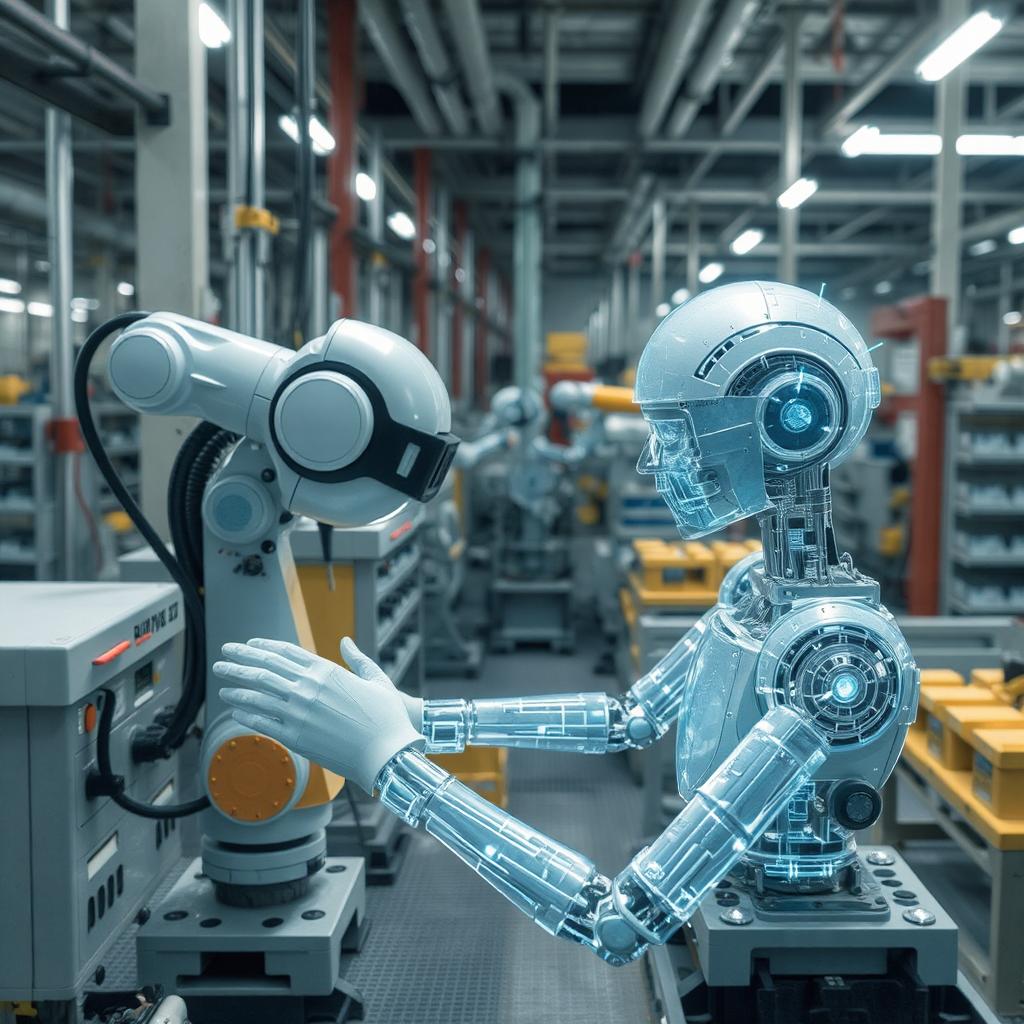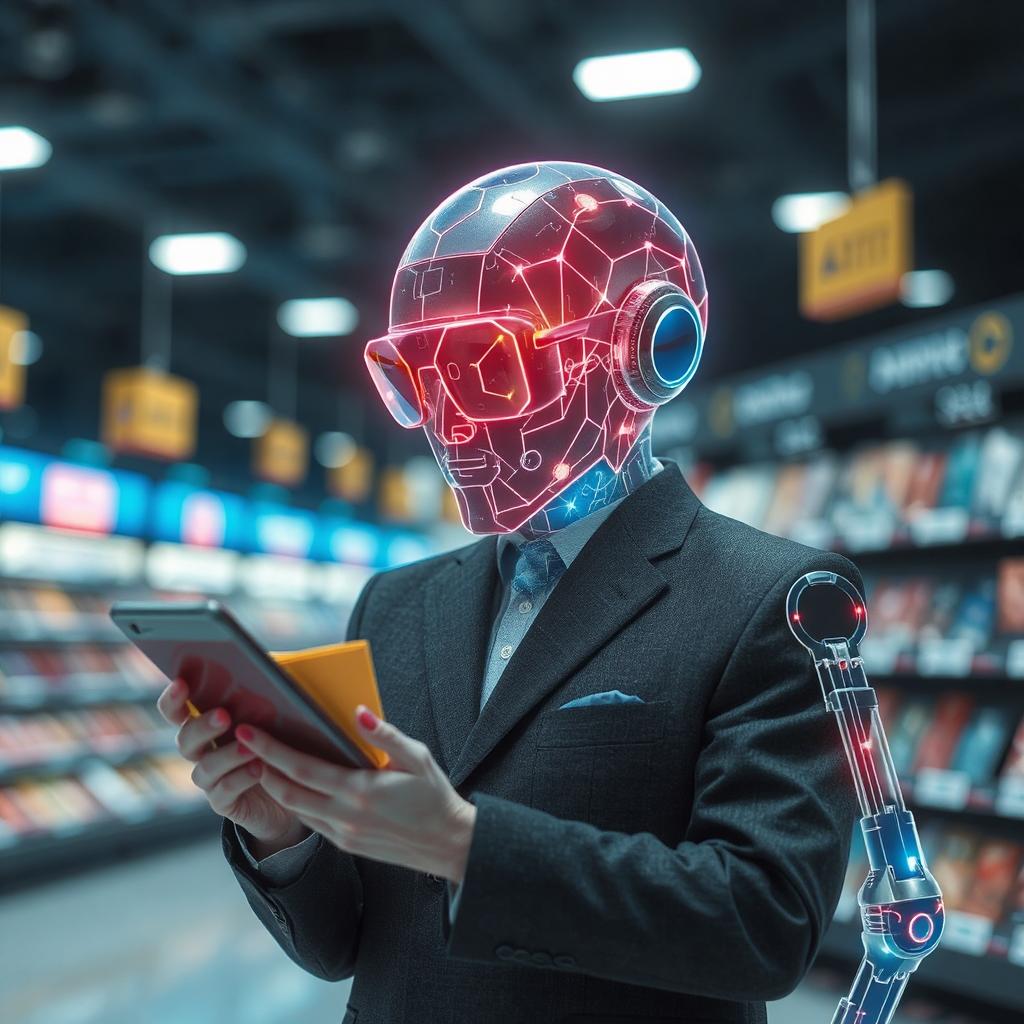In 2024, AI is revolutionizing industries like never before, reshaping how we work, interact, and innovate. From healthcare to finance, AI is driving change in ways previously thought impossible. In this article, we will explore five groundbreaking ways AI is revolutionizing industries in 2024 and beyond.
Table of Contents
1. AI Transforming Healthcare: Revolutionizing Patient Care

The healthcare industry has been one of the earliest and most significant adopters of AI technology. AI is revolutionizing industries by improving patient outcomes, reducing human error, and enhancing the overall efficiency of healthcare systems.
Predictive Diagnostics
AI algorithms analyze vast amounts of medical data to predict diseases before symptoms even appear. By identifying patterns in a patient’s health records, AI can make recommendations that allow for earlier interventions. This is invaluable in cancer research, where early detection can be the difference between life and death.
Robotic Surgery
AI-powered robots are also making waves in the operating room. Robotic surgery, guided by AI, allows for more precise and minimally invasive procedures, leading to faster recovery times and fewer complications for patients.
AI is not only improving patient care but also drastically reducing healthcare costs by streamlining administrative tasks and enabling doctors to focus more on patient-centered care.
Moreover, the integration of AI-powered robotic systems in surgical procedures is transforming operating rooms. Robotic surgery, guided by AI, allows for more precise and minimally invasive procedures, resulting in faster recovery times and fewer complications for patients. A recent study indicated that hospitals utilizing robotic-assisted surgery have reported a decrease in average recovery time by up to 30%. Additionally, AI is streamlining administrative tasks such as scheduling and billing, enabling healthcare providers to dedicate more time to patient-centered care, ultimately enhancing the overall efficiency of healthcare systems.
For more on AI applications in healthcare, visit the National Institutes of Health.
2. AI in Finance: Boosting Efficiency and Security

The finance industry has embraced AI to enhance operations, provide personalized customer experiences, and bolster security against fraud.
Algorithmic Trading
AI is driving high-frequency trading in the stock market, where algorithms can analyze vast amounts of financial data to make quick, informed trades. These systems recognize market trends and execute trades at lightning speed, far surpassing human capabilities.
Fraud Detection
Financial institutions are using AI to detect and prevent fraud. AI systems monitor transactions in real-time, flagging unusual activities that may indicate fraudulent behavior. These systems learn from past transactions, continuously improving their effectiveness.
By automating tedious processes and increasing security, AI is revolutionizing industries like finance, giving it a competitive edge while providing better services to customers. For more on AI’s role in finance, check out our article on AI in Financial Services.
3. AI in Manufacturing: Automation and Smart Factories

Manufacturing is undergoing a significant transformation thanks to AI. Automation and smart factory technologies are reshaping how goods are produced, leading to greater efficiency, reduced costs, and enhanced product quality.
Predictive Maintenance
AI predicts when machinery will require maintenance before breakdowns occur. By analyzing data from sensors embedded in machines, AI systems can schedule maintenance activities, reducing downtime and avoiding costly repairs.
Robotics and Automation
AI-powered robots are used in assembly lines, reducing the need for human labor in repetitive and dangerous tasks. These robots operate 24/7, increasing productivity and reducing costs. Smart factories equipped with AI can also optimize production processes in real-time, automatically adjusting to changes in demand.
Manufacturing is undergoing a significant transformation thanks to AI, marking a new era of innovation in production processes. Automation and smart factory technologies are reshaping how goods are produced, leading to greater efficiency, reduced costs, and enhanced product quality. For instance, predictive maintenance powered by AI predicts when machinery will require maintenance before breakdowns occur. By analyzing data from sensors embedded in machines, AI systems can schedule maintenance activities, which not only reduces downtime but also avoids costly repairs and extends the lifespan of equipment.
Additionally, AI-powered robotics are revolutionizing assembly lines by performing repetitive and dangerous tasks, allowing human workers to focus on more complex and strategic roles. These robots operate 24/7, significantly increasing productivity. A recent survey indicated that factories employing AI technologies have seen productivity increases of up to 20%. Furthermore, smart factories equipped with AI can optimize production processes in real time, automatically adjusting to changes in demand and minimizing waste, thereby enhancing overall operational efficiency.
4. AI in Transportation: Autonomous Vehicles and Logistics

The transportation industry is being revolutionized by AI, with autonomous vehicles and AI-driven logistics systems reshaping how we move people and goods.
Self-Driving Cars
Autonomous vehicles are becoming a reality. AI systems enable cars to drive themselves, making split-second decisions based on real-time data from cameras, sensors, and GPS systems. These self-driving cars promise to reduce accidents, improve traffic flow, and provide greater mobility for those unable to drive.
AI in Logistics
AI is transforming the logistics sector by optimizing supply chain management. AI systems analyze weather patterns, traffic conditions, and demand forecasts to make real-time decisions on the best shipping routes and methods. This leads to faster deliveries, reduced costs, and a more sustainable supply chain.
The transportation industry is being revolutionized by AI, particularly with autonomous vehicles. For a deeper understanding of advancements in this area, refer to the IEEE article on Autonomous Vehicles.
Moreover, AI is transforming the logistics sector by optimizing supply chain management. AI systems analyze various factors, including weather patterns, traffic conditions, and demand forecasts, to make real-time decisions on the best shipping routes and methods. This leads to faster deliveries, reduced costs, and a more sustainable supply chain. A report from a leading logistics company noted that implementing AI solutions has resulted in a 15% reduction in delivery times and a significant decrease in fuel consumption, contributing to lower carbon emissions.
5. AI in Retail: Personalization and Enhanced Shopping Experiences

AI is changing the way we shop, both online and in-store. Retailers use AI to offer personalized shopping experiences and streamline operations.
Personalized Recommendations
E-commerce platforms like Amazon and Alibaba use AI algorithms to recommend products to customers based on previous purchases and browsing history. These personalized recommendations increase sales and improve customer satisfaction by offering more relevant product suggestions.
Inventory Management
AI-powered systems help retailers optimize inventory management. By analyzing sales trends and consumer behavior, AI predicts demand for certain products, ensuring they are always in stock. This minimizes overstocking or stockouts, reducing waste and increasing profits.
Additionally, AI-powered inventory management systems help retailers optimize their stock levels by analyzing sales trends and consumer behavior. These systems predict demand for certain products, ensuring that they are always in stock while minimizing overstocking or stockouts. A case study from a major retail chain revealed that implementing AI for inventory management led to a 25% reduction in excess inventory and increased profitability. By leveraging AI technologies, retailers can enhance operational efficiency and create a more engaging shopping experience for their customers.
Conclusion: AI’s Impact Across Industries
In 2024, AI is revolutionizing industries at the forefront of technological innovation, driving change across sectors from healthcare to retail. It improves efficiency, enhances security, and provides personalized experiences that were unimaginable just a few years ago. As AI continues to evolve, we can expect even greater transformations across all sectors of the economy.
If you’re interested in learning more about AI trends or implementing AI solutions in your industry, stay updated with the latest advancements and consider adopting AI technologies to stay ahead of the competition. For additional insights into AI’s future, read our article on Future AI Trends.
For those interested in learning more about AI trends or considering the implementation of AI solutions in their industries, staying updated with the latest advancements is crucial. By adopting AI technologies, businesses can position themselves to thrive in an increasingly competitive landscape, ensuring they remain relevant and successful in the coming years.


It’s nice
Nice
b9f9kq
owcp09